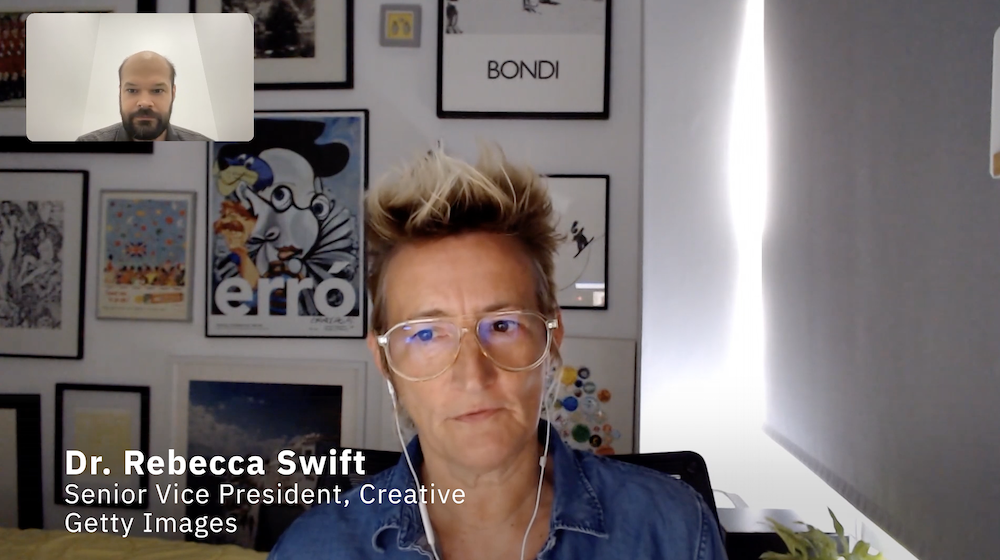The guest on “Tech Connects” is Dr. Rebecca Swift, Senior Vice President of Creative at Getty Images, a leading visual content licensing platform. Getty Images offers millions of photos, illustrations and videos to businesses around the world focusing on legally cleared, high-quality content. Rebecca oversees Getty’s large creative team, including photographers, filmmakers, visual researchers, producers who understand market trends and work to guide the creative community of a company of over 5 billion creators.
We’re digging deep into how AI-generated images shape the visual content industry and what this means for both tech experts and creative businesses. Rebecca shared fascinating insights into the rapid changes in the public perception of AI content, the complex legal landscape surrounding images generated by AI, and how they adapt to these technological changes.
Here’s a quick gist from this discussion for technical experts working with visual content, AI tools, or creative teams:
Understanding the trust factors of AI content: Initial excitement about AI-generated images quickly shifted to widespread distrust among consumers. AI tools seemed innovative because of their ability to visualize any concept, but the deepfake and misleading content surged consumers became skeptical of images that could not be verified as authentic. As a technology expert, we recognize that trust is fundamental to brand relationships, and we consider consumer sentiment in our decisions regarding AI-generated content use.
Navigate the complex legal landscape of AI-generated content. The legal framework for AI imaging remains vague and evolved. Unlike human-generated content, AI-generated images cannot be copyrighted, but only the prompts can be protected. Many AI tools are trained with web scrape content without proper licenses, creating a potential IP breach risk for businesses. Rather than relying on open source AI tools that could put your organization at liability, consider operating services that provide appropriate licensing and legal protection measures.
Use AI for modifications rather than pure generation: AI is better at modifying and repetition of existing content rather than creating whole new, authentic images. For marketing teams that require multiple versions of campaigns and quick iterations, AI can help with adaptation tasks. However, be aware that being skilled at AI prompts is a clear skill that requires time and practice to develop effectively, especially for people with traditional creative backgrounds.
Embracing credibility as a competitive advantage: As AI-generated content becomes ubiquitous, there is a growing countertrend for authentic, locally sold, unique human content. Technology experts should consider how organizations can distinguish themselves through true human creativity, hyperlocal content, and experiences that capture current reality that is not fully represented in AI training datasets. Areas such as remote work culture, environmental sustainability, and modern social dynamics provide opportunities for authentic content creation.
Of course, there was much more to that chat, so if you feel you’re leaning so much, just ask one more. Thank you for participating. Dice is also your best resource for finding the technical talent you need to play an open role and for Tech Pro, the perfect place to grow your tech career.



